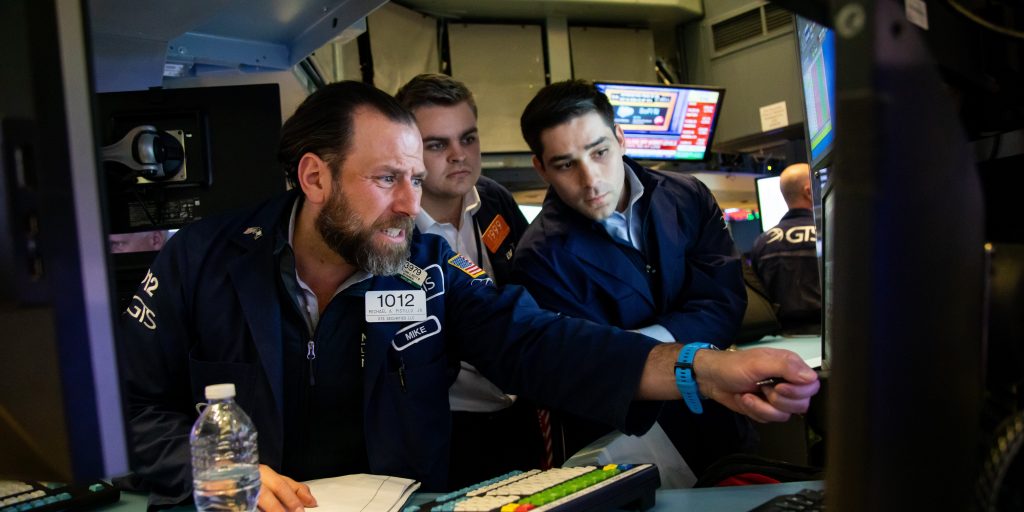- The S&P 500 is on pace to deliver the worst returns for the first half of the year since 1970.
- But stocks could stage a sizable recovery if the economy avoids a recession and inflation peaks, Ned Davis Research said.
- These are the five things that need to go right for the stock market to surge in the second half of the year.
The stock market is on pace to deliver the worst first half return since 1970, with the S&P 500 down more than 20% year-to-date.
Persistently high inflation, aggressive rate hikes from the Federal Reserve, and mounting concerns about an economic recession have dragged down asset prices in everything from stocks to bonds to cryptocurrencies.
But the stock market could be on the verge of a big recovery in the second half of the year if five economic factors show signs of improvement, according to a Wednesday note from Ned Davis Research.
"Extremely weak first halves are almost always followed by strong second halves," NDR's Ed Clissold said, adding that "a second half recovery would require improvements from inflation, the Fed, the economy, geopolitics, and earnings."
That sounds like a tall order, but with investor sentiment sitting at extremely pessimistic levels, a lot of bad news is already priced into markets and any improvement in macro data could lead to buying pressure for equities.
"Bear markets do not just end on their own. Macro factors turn in the market's favor," Clissold said.
1. "Disinflation could trigger a second half rally."
"A few signs of improvement on the inflation front could be enough to trigger a rally in stocks. The CPI has been accelerating since June 2020. A break below its six-month moving average could signal the worst of inflation is over," Clissold said. In May, CPI came in hot at 8.6%, just about the six-month moving average of 8.0%.
2. "Sustained yield curve inversion would signal a hard landing."
"Fed officials have been clear in their desire to rein in inflation, even at the risk of causing a recession. Their goal is to achieve a soft landing, but they view their credibility as more important to the long-term health of the economy than a couple quarter of economic growth," Clissold said.
Investors should monitor the three-month treasury bill yield curve to see if the Fed will be able to stick a soft economic landing later this year.
3. Economy avoiding a recession
"The average non-recession bear market drops 25% over 9.1 months, versus [a] 34.6% [decline] over 15.3 months for recession bears. Over the past 50 years, the median non-recession bear market has fallen 18% over 6.8 months. If the economy avoids a recession, then the current decline is approaching the average bear for both time and price," Clissold said.
3. "Midterm years weak through Q3, on average."
Not only would a resolution to the ongoing conflict between Russia and Ukraine be a relief for the stock market, but the upcoming mid-term elections in November could also drive a rally. The research firm highlighted that stock market returns are historically weak through the third-quarter of mid-term election years.
"The presidential party tends to lose seats in both the House and Senate, especially in the president's first term. The good news for the bulls is that historically, inflation-adjusted returns have been higher when Democratic presidents have had a least some check on their power from Congress," Clissold said.
5. Avoiding an earnings slowdown.
"Tough year-over-year comparisons almost guaranteed that earnings growth was going to slow in 2022. It was a question of degree... How companies control employee costs could determine if earnings revisions in the second half are of the benign variety or a precursor to an earnings recession," Clissold said.
